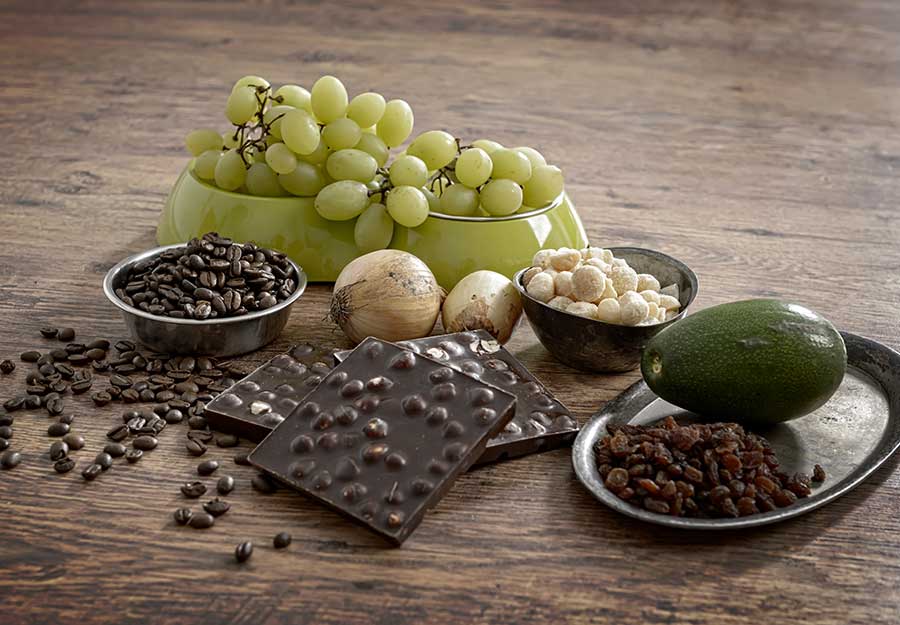
Let’s face it: many of us feed our dogs from our plates even though we know we shouldn’t. While it’s tempting to give leftover scraps to our canine friends, the reality is there are many human foods that are unhealthy and even dangerous for dogs. Feeding table scraps to your dog can be a bad habit that can harm your pet. Before feeding something new to your pet, you must ask yourself questions like, can dogs have sugar?
The High Cost of Table Scraps
Every year, there are more than 17,000 pet emergencies pertaining to human food consumption.
Those visits aren’t cheap, either. According to a sampling of typical costs associated with pet emergencies, toxin ingestion can cost pet owners anywhere from $250-$5,000 and more.
Other stomach-related issues like food bloat, stomach bloat, weight gain, and intestinal obstructions are equally as expensive. And let's not forget the high cost of secondary food-related diseases and conditions such as obesity and diabetes.
And the highest cost of all? Many frantic vet calls and visits end in tragedy. A hefty vet bill may be all you bring home. Lower your vet bill and help your pet live longer by keeping these dangerous human foods away from your dog:
Top 10 Toxic Foods for Dogs
Just because you love a three-course dinner doesn’t mean your dog should indulge as well. As a responsible pet owner, it is important to understand which human foods are dangerous to dogs. Here is a list of the top ten foods to avoid feeding your pets:
1. Chocolate and Coffee.
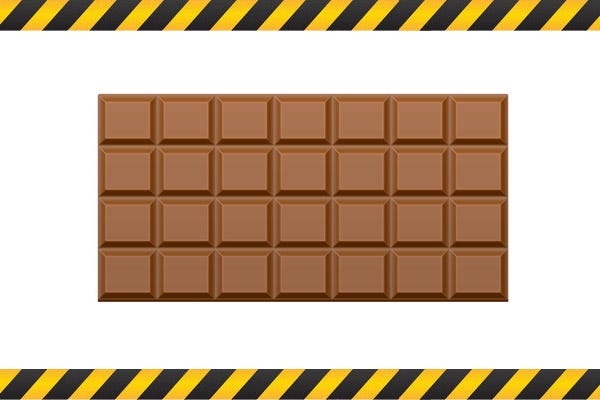
As the statistics mentioned, toxin ingestion is an expensive and potentially fatal mistake for your dog. Chocolate and coffee, as well as other caffeinated foods, contain substances called methlyxanthines. Because chocolate and coffee can be life-threatening, even a small quantity could be fatal.
Caffeine in coffee and theobromine in cacao (cocoa) beans are both highly toxic to pets. At the very least, types of sugar like methylxanthines can cause vomiting and diarrhea, panting, dehydration, and excessive urination in dogs. At their worst, symptoms can manifest in tremors, seizures, abnormal heart rhythms, and even death.
While no chocolate should ever be given to dogs, it is worth noting that the darker the chocolate, the more dangerous it is. White chocolate has the lowest level of methylxanthines, while typical baking chocolate contains an extremely high level. Sweet tooth or not, your dog should not be ingesting any chocolate or coffee.
The smaller the dog, the less toxin it takes for adverse symptoms to appear.
2. Alcohol.
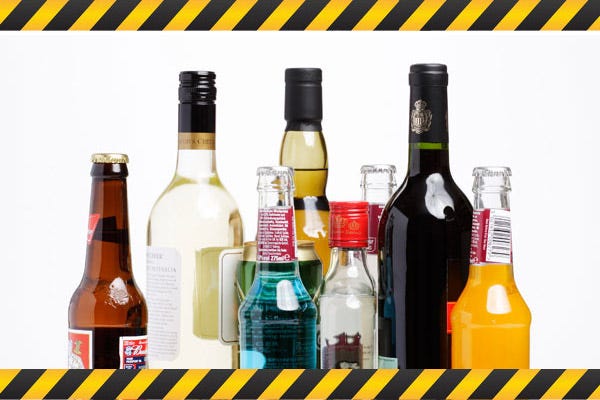
When enjoying an alcoholic beverage, avoid placing it on a table or surface that your dog can easily reach. Alcohol contains ethanol, which can cause damage to a dog’s respiratory and central nervous systems.
Ethanol is especially threatening to dogs because of how rapidly it can be absorbed in your dog’s bloodstream. Food and beverages containing alcohol can cause diarrhea, vomiting, difficulty breathing, decreased coordination, abnormal blood acidity, tremors, unconsciousness, and even death in dogs.
3. Yeast Dough.
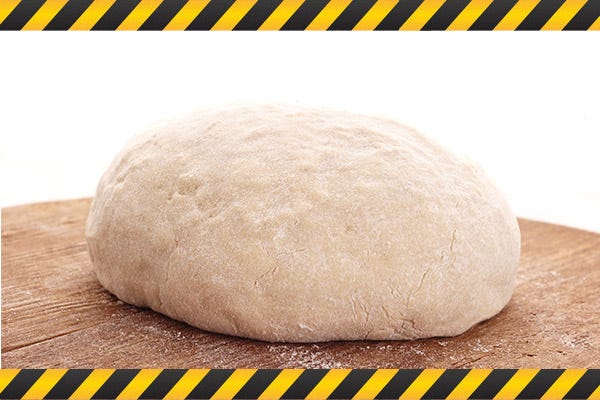
Many people understand the process that takes place when making your own bread or pizza dough. Before it can be baked, the dough needs to rise to the appropriate level. It is that rising property that makes yeast dough especially dangerous for canines.
If your dog ingests bread dough, it will continue rising in its stomach and can stretch the abdomen. This can be extremely painful and even cause the intestines to rupture. Also note that just like alcohol, yeast contains ethanol. Large amounts of yeast dough can induce negative side effects related to alcohol consumption.
Never leave your pet unattended with rising yeast dough on the counter. The smell can be irresistible to dogs, so don't take the chance.
4. Grapes and Raisins.
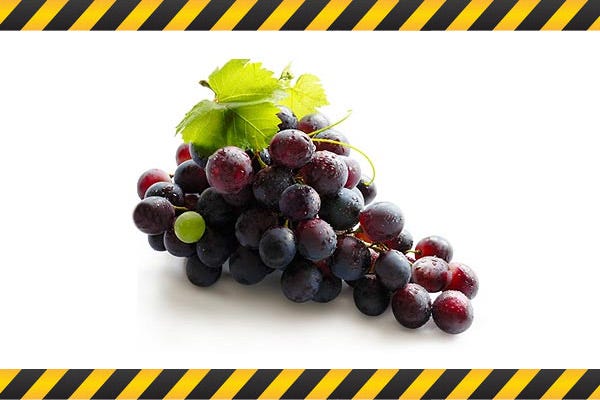
This one may come as a surprise for some pet owners. Grapes and raisins are often used as treats for dogs, but it is best to avoid feeding these seemingly harmless fruits to your little friend. The exact toxic substance within grapes and raisins is not yet clear, but one thing is for sure: it can be deadly.
It does not necessarily take excessive amounts of these toxins to cause kidney damage or failure in dogs. Other side effects include vomiting, lethargy, and depression. For pets with existing medical conditions, the side effects of grapes and raisins may be more pronounced.
5. Onions and Chives.
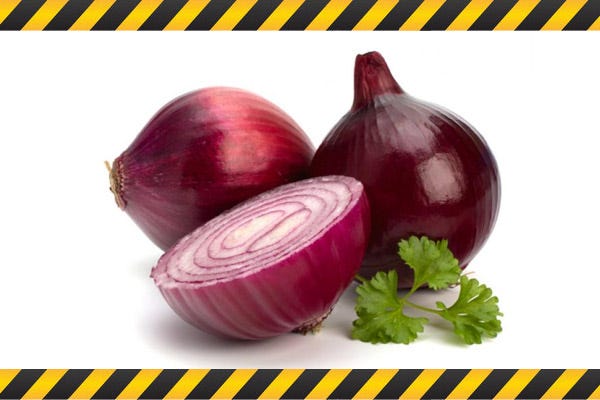
Onions and garlic are commonly added to human foods to give them flavour and spice. However, onions, chives, and other similar vegetables and herbs can cause major gastrointestinal irritation in dogs.
They have also been connected to red blood cell damage, weight loss, and lethargy. While onions and chives are significantly more dangerous to cats, dogs should avoid these toxic veggies.
Garlic is also part of the onion family but is safe to feed in small doses. Feeding too much garlic can be toxic, but the right amounts can offer positive health effects. Just make sure you feed it appropriately.
6. Fat and Bones.
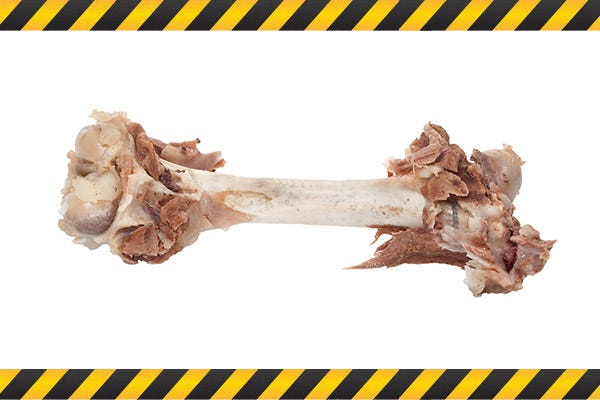
Many dogs will wait patiently for a taste of your turkey or roast dinner, but feeding fat trimmings and leftover bones to your dog can be dangerous and unhealthy. Fat trimmings and other greasy foods can cause pancreatitis in dogs.
Bones, particularly cooked bones and many poultry bones, are a leading factor in intestinal lacerations and choking. Stick to edible, raw bones, or those ground bones in a raw diet, and your pet will be much safer.
7. Some Nuts.
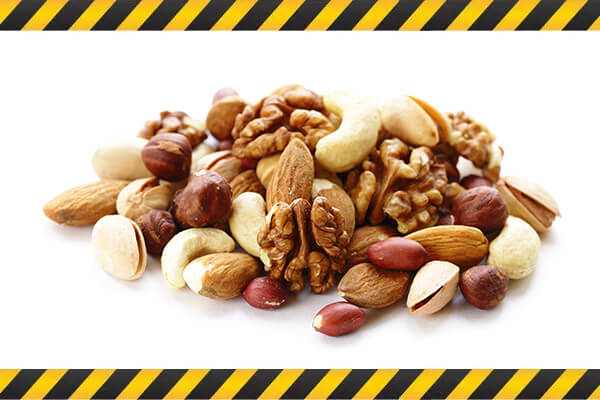
Nuts aren't a typical ingredient in pet food, but any dog owner knows that our snacks tend to catch your dog's attention. While they are a healthy and nutrient-dense snack for us, some types of nuts can be dangerous for dogs.
Macadamia nuts, for example, contain an unknown toxin for dogs that can have neurological effects. Other nuts that should be avoided, include black, Japanese, and English walnuts, pistachios, pecans, and hickory nuts.
There are some nuts that are safe for dogs, though. Peanuts, cashews, hazelnuts, almonds, and pine nuts are all safe to share with your pooch. These high-fat foods can put your dog at risk for pancreatitis, so even those that are safe for dogs, they should only be fed in very small quantities.
8. Xylitol and Artificial Sweeteners.
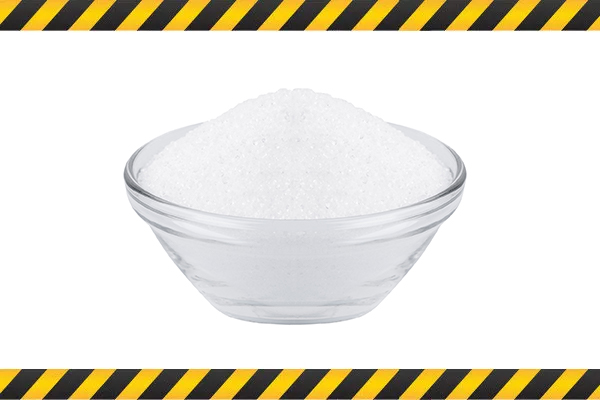
These toxic sweeteners are a rising star in pet poison calls and vet visits. Once only found in dental gum and diabetic candies, xylitol and other artificial sweeteners are now abundant in processed foods in our homes and are used as sugar alternatives in baking. Feeding your dogs a sugary treat from time to time causes more damage than you might assume and could affect them in the long run. But can dogs have brown sugar? Absolutely not.
Products such as gum, candies, children's medicines, cough drops, baked goods, diet foods, ice cream, peanut butter, and even yogurt can contain these artificial sweeteners - and these are just a few.
So what's wrong with artificial sweeteners? While artificial sweeteners are safe for humans (often only producing a mild laxative effect), they can be very toxic for dogs. Xylitol and other artificial sweeteners can cause low blood sugar (hypoglycemia), seizures, liver failure, or even death in dogs. This also goes for sugar-free gum.
Just like you and me, dogs are drawn to sweet tastes. Read your labels carefully, avoid sharing, and keep pantries and trash secure and off-limits to dogs.
9. Fast Food.
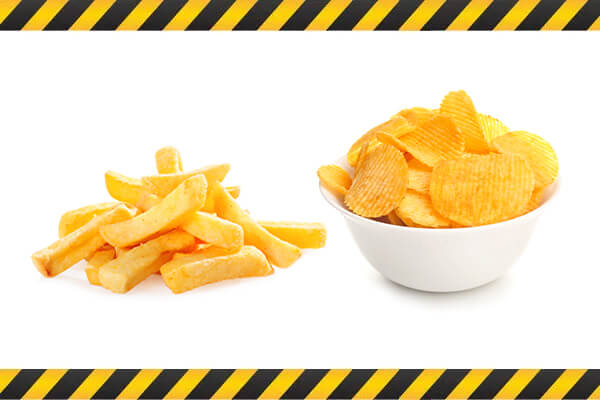
Fast food is not good for us. We know this, but most of us still indulge from time to time. However, fast food is not safe for your dog to snack on. Fast food contains high levels of fat, salt, and sugar, and can even contain hidden artificial sweeteners.
This can mean all sorts of unpleasant side effects for your dog including gastrointestinal upset, vomiting, diarrhea, constipation, cramping, dehydration, excess urination, seizures, and pancreatitis to name a few. There are so many healthy dog treats and nutritious whole food alternatives to feed your dog. If you must indulge in fast food, leave your pet out of it.
Also, avoid giving your pet deep-fried foods, high-fat foods such as gravy, and most heavily processed foods (i.e. frozen dinners and entrees, restaurant leftovers, and people snack foods like chips, pretzels, and buttered popcorn).
10. Sugar.
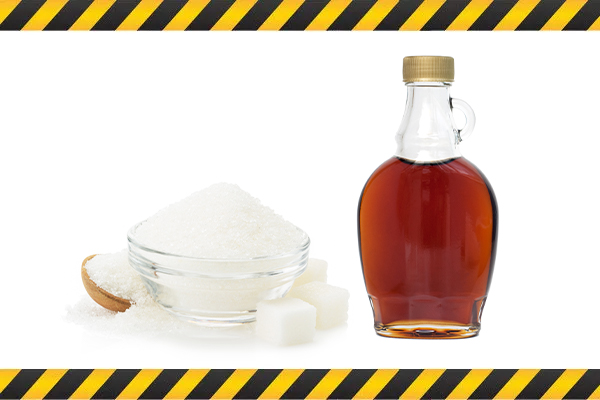
Many dogs have a sweet tooth just like we do, and while sugar for dogs is not good for you, it can be even worse for your furry friend. Granulated sugar for example is not toxic to dogs, but over time, feeding your dog sugary treats can result in obesity that can shorten their lifespan and cause multiple secondary diagnoses, including diabetes in the long run.
Avoid giving your dog any types of sugar or sugary treats of yours, but also check your dog treats for any amount of sugar and its many monikers: caramel, glucose, fructose, brown rice syrup, barley malt syrup, corn syrup, cane juice, beet sugar, sorghum, and more. No matter if your dog eats brown sugar, white sugar, or something similar, it can inevitably cause issues.
Healthy Dog Treat Options
Feeding your dog a dog treat doesn't have to be rocket science. Avoid these dangerous foods and feed your dog a variety of healthy, less processed, whole food alternatives. This way, you avoid symptoms like vomiting and diarrhea, heart diseases, weight gain, and other life-threatening illnesses.
Whole foods such as carrots, apples, broccoli, blueberries, pumpkin, banana, coconut and many more are safe to share with your dog in moderation and are readily available in a variety of dog food.
While there are some veggies and fruits that your dog should not be eating, there are countless more that provide antioxidants, nutrients, and delicious energy, proving to be good for your dog. Try many and find your dog's favourites (always remove pits and peels, they pose an obstruction risk and can contain toxins).
Frequently Asked Questions
What are some common human foods that are dangerous for dogs?
Common dangerous human foods for dogs include chocolate, grapes, raisins, onions, xylitol (a sugar substitute), caffeine, alcohol, certain nuts, and fatty foods like fried items.
Why is chocolate harmful to dogs?
Chocolate contains theobromine and caffeine, which are stimulants that can be toxic to dogs. Consumption of chocolate can lead to symptoms like vomiting, diarrhea, rapid breathing, increased heart rate, seizures, and even death.
What should I do if my dog eats something toxic from the list?
If your dog consumes potentially toxic human food, immediately contact your veterinarian or an emergency pet poison hotline.
Can a small amount of these foods harm a dog?
Yes, even a small amount of toxic foods can be harmful to dogs, especially if ingested regularly or by small breeds.
Are there variations within these foods that are safer for dogs?
While some variations may be less toxic than others, it's generally best to avoid all forms of these dangerous foods in your dog's diet.
What are some safe and healthy treats I can give my dog instead?
Plenty of safe and healthy dog-friendly treats are available, including commercially made dog treats and fresh fruits and vegetables like carrots, apple slices, or blueberries.
.png?width=200&height=66&name=logo%20(1).png)


